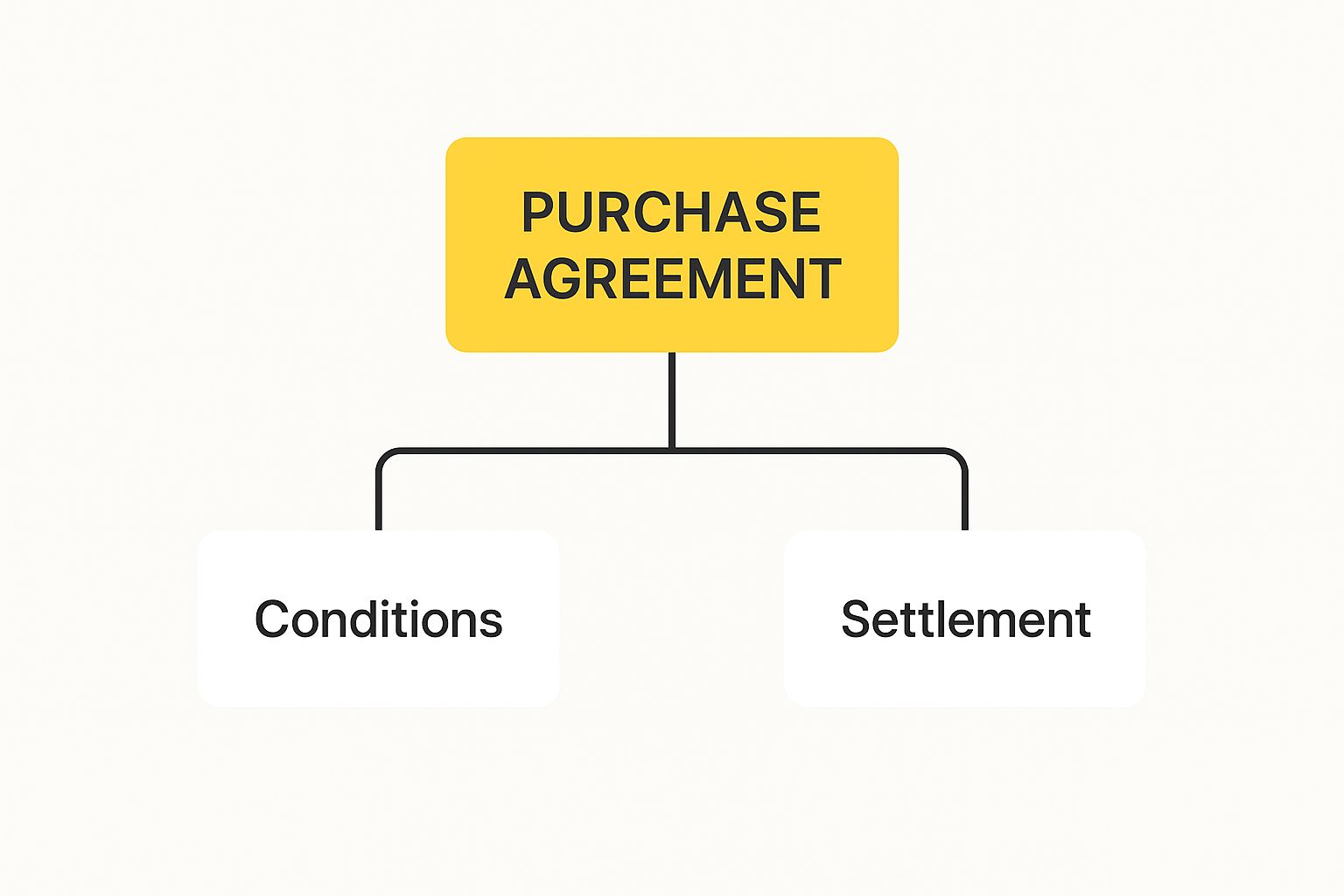
Welcome to your friendly guide on the ADLS Agreement for Sale and Purchase of Real Estate, the legal cornerstone for just about every property sale here in Wellington and right across New Zealand.
Quick note, before we jump in: The information here is just for general interest, it’s not official or legal advice. Some of it’s based on experience or borrowed from property portal sources that share useful tips. We do our best, but we are not qualified to provide legal advice; hence why we recommend that you engage a qualified solicitor for expert advice.
Think of this document as more than just paperwork. It’s the essential blueprint that makes sure the entire transaction is fair, clear, and legally sound for both the buyer and the seller. As a local Wellington real estate professional, I know these processes like the back of my hand. I have a fantastic network of professionals, from Cleaners, Gardeners, Painters, to lawyers and accountants, whom I can introduce you to for your consideration to assist with your sale.
Your Guide to Wellington’s Key Property Document

So, what exactly is this agreement? Let’s break it down.
Think of the ADLS Agreement for Sale and Purchase as the official rulebook for nearly every property deal in New Zealand. It’s the standard, legally binding contract that clearly lays out all the terms of a sale. Developed by legal and real estate experts, it’s specifically designed to protect everyone involved by locking in crucial details like the price, settlement date, and any special conditions.
It’s the single source of truth that both the buyer and seller commit to. Whether you’re selling a family home in Karori, a townhouse in Ngaio, or an apartment in Te Aro, this is the document that makes the deal official.
Key Parts of the Agreement to Understand

The Sale and Purchase Agreement can look a bit daunting, but it’s simpler when you know its three core sections:
- The Front Page: This is the ‘who, what, and how much’ of the deal. It lists the names of the buyer and seller, the property address (e.g., a villa in Thorndon), the agreed price, and the deposit amount.
- The Schedules: This is the inventory list. It specifies all the chattels included in the sale, like the oven, curtains, dishwasher, or heat pump. Everything staying behind should be clearly listed here to avoid any confusion.
- The General Terms of Sale: These are the ‘rules of the game.’ This section lays out everyone’s obligations for settlement day and outlines what happens if things don’t go according to plan.
Understanding these parts means you can have a much more productive chat with your lawyer, who’s there to handle all the tricky fine print for you.

Seller vs. Buyer Responsibilities at a Glance
To give you a clearer picture, here are the main obligations for both parties. While your lawyer will manage the specifics, understanding your core duties is essential.
| Responsibility Area | Seller’s Obligation | Buyer’s Obligation |
|---|---|---|
| Property Condition | Maintain the property in the same state it was in at the date of the agreement, fair wear and tear excepted. | Accept the property in its ‘as is’ condition, unless specific warranties are included. |
| Title | Provide a clear title to the property, free of any undisclosed mortgages or encumbrances. | Investigate the title and raise any objections within the specified timeframe (usually 10 working days). |
| Disclosure | Disclose any known defects or issues with the property that may not be apparent on inspection. | Conduct their own due diligence, including obtaining building reports, LIMs, and valuations. |
| Settlement | Vacate the property and hand over keys on the settlement date upon receipt of funds. | Pay the full purchase price on the settlement date. |
| Chattels | Ensure all chattels listed in the agreement are in reasonable working order at settlement. | Check the chattels during the pre-settlement inspection to confirm they are present and working. |
This table covers the basics, but remember that clauses can be added or amended to suit a particular sale. It’s another reason why having a legal expert in your corner is non-negotiable. Interestingly, some professionals are now even using AI-powered legal contract analysis tools to speed up the initial review process, though it never replaces the critical eye of an experienced property lawyer.
Why Your Lawyer Is Your Most Important Ally

While my job is to get your property in front of the right buyers, your lawyer’s role is to protect your legal and financial interests. They will pore over the fine print, offer sharp advice on any conditions, and ensure the whole settlement process goes off without a hitch.
Imagine discovering a complex cross-lease title issue on your Hataitai property, or finding an unexpected earthquake-prone building notice for your apartment in Thorndon. This is precisely where a good lawyer earns their keep – their expertise is invaluable. With Wellington property prices representing such a significant transaction, their role in safeguarding your interests can’t be overstated. You can read more about why having a specialist New Zealand conveyancing lawyer is so important when buying or selling real estate to get the full picture.
Customising the Agreement for Your Sale
One of the biggest mistakes is thinking the ADLS agreement is a rigid, take-it-or-leave-it document. It’s not. Think of it as a template that can be shaped to fit your specific sale, particularly in the ‘Further Terms of Sale’ section.
Wellington’s property market is full of unique scenarios. For instance, if you’re selling your lovely home in Brooklyn but haven’t yet found a new place, a lawyer can add a clause for a longer settlement period. Or perhaps you’re dealing with a property in a special heritage area like Mount Victoria. We also see specific clauses needed for properties held within family trusts. To get a better handle on this, you can read our overview on Family Trusts in New Zealand.
Ultimately, tailoring the agreement ensures the contract is fair and protective for everyone.
Selling with Confidence
Thank you for reading this post. The ADLS Agreement is a brilliant tool, but its real power comes from using it correctly with a sharp legal professional guiding you.
If you’re starting to think about your next move, I’d love to have a chat. Feel free to contact me directly to discuss your circumstances and explore your options. (Halina 0212263917)

.
.
.
.
.
.
.
.
.
.
.
.
.
.
Disclaimer: The real estate content shared on this blog is intended for general informational purposes only and industry observations. The content may reflect personal views or reference third-party sources, but it is not a substitute for tailored professional advice. Real estate decisions often involve legal, financial, and regulatory complexities, and readers should seek independent guidance from qualified specialists such as legal advisors, financial consultants, or compliance professionals before acting on any information presented here. No warranty is given as to the accuracy, completeness, or current relevance of the material.




